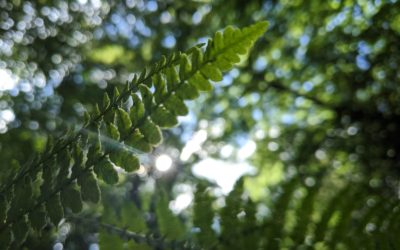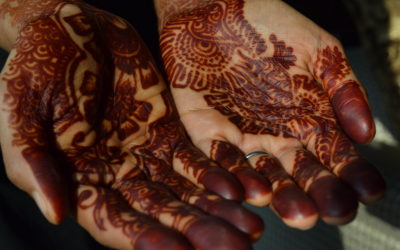“Which Sabah I will be today?”
This is a question I ask myself every day.
“Which Sabah am I going to be today?”
I am many things, but I often have to choose
I choose to keep myself safe.
Am I ashamed? No. Am I hiding? No.
I choose to keep myself safe because it’s dangerous. What I represent threatens the norms of our society and expectations of who I should be and who I shouldn’t be.
A proud transgender Muslim unapologetic hairy brown queer.
I know what you’re thinking
Yes, we exist. Yes, I am happy. Yes, my friends & family are okay with it.
I know what you’re thinking because this is the first thing I have to say when I speak to people or attend an LGBT event: I have to justify my existence and convince them I belong. The number of times I go to LGBT events and get asked: “Oh hi, are you in the right place?”
Yes I am and I belong here as much as you do.
But if the ‘right’ place is asking me to prove it, then maybe it isn’t the right place after all
I constantly have to justify why I am here, why I’m a part of this community
As trans people of colour we are told we shouldn’t value ourselves, we are told we shouldn’t exist, through violence and hatred.
When services don’t see you, when society doesn’t stand up for you or represent you, it sends the message: this service is not for you. This world is not for you.
We know people of colour are very marginalised and isolated. Our mental health is suffering and our suicide rates are rising.
So, why are we doing this?
Why are we as a society continually perpetuating :
the single trans narrative: rejected
the single black narrative: angry
the single Muslim narrative: terror
I want to read you a quote by someone I really look up to, Chimimanda Ngozi Adiche, who is an author and black feminist, on the dangers of the single story.
“The single story creates stereotypes, and the problem with stereotypes is not that they are untrue, but that they are incomplete. They make one story become the only story.”
Stereotypes born out of stigma and fear keeps my identity from existing as a whole
The assumption is that the communities I am a part of don’t all fit together
This is why I have to choose which Sabah will I be today
There’s a problem with that
I’m never going to be trans enough
I’m never going to be brown enough
I’m never going to be Muslim enough
Because I’m too brown to be trans enough
Because I’m too queer to be Muslim enough
These assumptions feed into the media. We become headlines, storylines, plot twists and tragedies.
We are not represented.
Our stories are only written with unhappy endings.
These assumptions feed into our healthcare where doctors’ white experiences of non-white culture trump our own lived experience of our own culture.
Gender Identity Clinics think we aren’t trans enough because we won’t disown our family if they don’t initially support us when we come out. Or because I didn’t change my unisex Arabic name.
I don’t always get to choose which Sabah I will be, it’s often chosen for me – because my skin colour always comes first
And when I’m talking about being Pakistani or introduce my name, I know ‘Muslim’ comes second
Then something interesting happens. All that I am is judged against me being Muslim.
“What did your parents say? What did your community say? How can you be Muslim and trans?”
These are not the questions you should be asking.
Don’t ask me… What did your community say? à Ask yourselves… as non-Muslims, What can our community do?
Don’t ask me… How can you be Muslim and trans? à Ask yourselves… as non-Muslims, How can we accept those who are Muslim and trans?
This isn’t about my answers, this isn’t about me. Muslims cannot tackle Islamophobia alone, we alone can’t break a system that was designed to oppress us. This is about you, your answers, your attitudes, your beliefs.
It’s worth saying now that transphobia is not a Muslim issue.
There are 5 Muslim countries where being gay is not a crime. What do they all have in common? None of them were colonised by the British Empire. It was the colonial laws of the British that criminalised homosexuality.
So no, transphobia is not a Muslim issue.
Homophobia, biphobia, transphobia are not religious issues.
No one is born transphobic. No one is born racist or Islamophobic.
We all learn these things. We learn what a society will tolerate in our culture or community.
We learn these things and call them norms and impose those norms onto our experiences, whether it’s interpreting religious scripture or meeting someone black and thinking, no they can’t be gay.
We all have to unlearn it.
I’m not going to lie to you, since I accepted the invitation to speak at this event, I changed my mind about it many times. Saying ‘yes’ was a decision that bothered me. And that’s because speaking at this event would give the impression that I align myself with the police force and what they stand for. Speaking here next to officers and constables would imply that I am pro-police.
I’m not.
I’m not because I believe there can be no peace whilst LGBT people co-operate with the police. Police continue to be a part of pride parades worldwide thinking this is how to keep queer and trans people of colour safe. No, it’s how to keep us out.
Because Stonewall was a riot. Remember, it was a police raid that sparked the most important event that led to our LGBT liberation.
I’m not because only certain demographics rely on calling 999 to feel safer and to make things better. Being brown, black, Muslim, trans, queer, means you are on trial the moment you are known.
Because the number of deaths in police custody are at the highest level for five years. And a disproportionate number of those people are people of colour. 1500 and counting.
Justice for Sarah Reed. Justice for Mzee Mohammad. Black lives matter.
I’m not because the Islamophobic attacks in London have tripled since the Paris shooting. Islamophobic attacks have tripled in just a year and a half.
Because the number of Muslims in prison is 1 in 7. Compared to 1 in 20 of the general population. That’s alarming. When just 1% of Muslim prisoners has been convicted of a terrorist-related offence.
This may not be the United States where black men and women are murdered every week at the hands of the police. But the UK is not innocent. We still suffer with the same disease of institutional racism and Islamophobia. If we are going to address our stereotypes and internal bias, we must address privilege and power.
This is not an opportunity for you to try and change my mind, to tell me ‘not all cops are bad.’ No. This isn’t about your police buddies, or the cops that are here, this isn’t about you. This is about a police system that is inherently anti-black, racist and Islamophobic. This is about a system that was designed to never protect us.
Here is a chance for you to hear what the reality is for black and brown LGBT people and LGBT Muslims. Our race, faith, and gender are all connected. We can’t chose who to be today or tomorrow. We don’t always get choices; I’m brown, Muslim first, before anything else. And when you’re Muslim in the UK, you’re a terrorist, you’re a target, you’re hated.
This is not just about equality, this is about fighting for justice.
You can’t have equality for all, with justice for some.
If you want to know how to support LGBT Muslims, start by supporting Muslims.
If you want to be a better ally, start by fighting for people of colour.
Because we don’t just exist within the LGBT community.
We exist outside of that, in our own communities, in different spaces.
And when we are under attack, your community is under attack too.
When I suffer, your community suffers too.
Your support for us should not depend on the shared use of 4 letters.
Your allyship to us should not depend on anything.
It is necessary that you fight for our lives too.
It is necessary that you are not a part of a society that hates Muslims.
It is necessary that you tell us black lives matter too.
This is not your average talk on LGBT inclusion.
This is not your inspiration.
This is your call to action.




0 Comments